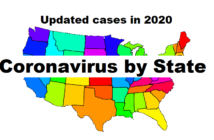July 29, 2010
Adam Arnold
Staff Writer
The Nation
The United States is a nation of immigrants, but the US economy and infrastructure are currently too fragile to support potentially millions of undocumented residents. There is a wide grey area dividing these two realities, but the black and white question is this: Are the United States better served by expelling illegal immigrants or by granting them citizenship?
‘Michael’, an anxious illegal alien in Virginia, arrived in the US from Argentina eight years ago in pursuit of a college education. Recently, the sudden changes in immigration laws have increased his fears of deportation and now threaten the life he has built in the Washington, DC metro area. Today, Argentina’s government and economy are relatively stable after decades of difficulties, but Michael believes that opportunities – both professional and educational – are still greater in the US than in his native country. Although he could have attended university for free in Argentina, he chose what he considered a better system in the US, despite the expense.
As a foreign student, Michael faced limitations regarding how long he could study in the United States, as well as scholarships, loans, and work-study options. He extended his education here for as long as possible before his resources were exhausted. Michael’s employer at the time could have helped him remain in the country, but chose not to offer sponsorship.

If one’s employer is willing to fill out and file the necessary paperwork, receiving permission to work legally in this country is “easy,” according to José Gomez, from El Salvador, who works for an auto dealer in Maryland. For such employers, having productive workers who contribute to their businesses and communities is worth the time, effort and expense of helping them obtain their Green Cards. Regardless, Michael was faced with the choice of remaining in the United States illegally or going back to limited opportunities in Buenos Aires.
Beyond the expense of moving back to Argentina, another factor figured into Michael’s decision to remain in the US. Born in the United States two years earlier, Michael’s son is legally a US citizen. Michael wants his child to enjoy the benefits of living in this country.
To get by, Michael has found work in a variety of fields, from construction to real estate. He has always declared his income and paid taxes on his earnings. Nonetheless, he fears the possibility of being identified and deported. Lawyers explained to him that his options for remaining here legally are limited, and the longer he remains here the harder legalization will become. The current legislative changes in the state of Arizona are in the forefront of his mind and add to his daily worries.
Supporters of Arizona Senate Bill (AZ SB) 1070, including Arizona Governor Jan Brewer, say the bill simply enforces existing federal law. Officially titled the “Support Our Law Enforcement and Safe Neighborhoods Act,” AZ SB 1070 states that a resident alien found not in possession of his or her documents (already required by federal law), is guilty of a misdemeanor offense.
DC resident Margarita Dilone, co-founder of the nascent Hispanic American Political Alliance, finds the bill “disturbing.” She says the bill’s language, however it is defended or amended, opens the door to discrimination, threatening the rights of immigrants and US citizens alike. Dilone says she does not see how a police officer on duty can suspect someone “may be ‘illegal’ without taking into consideration their skin color, or their accent.”
In response to such concerns, Arizona House Bill (AZ HB) 2162 was created to amend the Senate Bill by requiring that individuals asked to show their documents must be lawfully stopped, detained or arrested on other grounds; it prohibits acting on “complaints based on race, color, or national origin.” The House Bill also reduces both the fines and the jail sentences that can be levied against those without documentation.
AZ SB 1070’s supporters believe the amendment removes the risk of racial profiling, but opponents say that once an individual without documents is detained, he or she may become subject to discrimination or prosecution at a later time, even if the initial charges are dropped. Dilone describes it as “scapegoating” as a response to, among other things, the economic crisis. “The economy is changing,” she says. “We need to start looking at solutions instead of who we’re blaming next.”
“Many people do not want legalization,” acknowledges Saul Solorzano, Executive Director of CARECEN, DC’s Central American Resource Center. Such people “will grasp any convenient argument” to prevent reform which might include amnesty for long-time residents.
Those who oppose naturalization claim illegal immigrants often commit crimes, pay no taxes, and take jobs and resources from US citizens. These claims are disputed by members of the Latin community. “People don’t understand that these are human beings,” says Dilone. She worries that valid concerns have become exaggerated by distortion of facts by anti-legalization politicians and activists.
The original US immigration legislation – 1790’s Naturalization Act – required would-be citizens to live in this country for two years before naturalization in order to demonstrate their ability to contribute positively to their communities. After eight years – four of them as an undocumented alien – Michael, despite never having committed a crime, feels he is treated like a criminal. He must remain in the US and can not travel outside the country, because once he leaves, he will not be allowed back in. “It’s like an open jail,” he says. “You have a lot of benefits… [but]the idea of not going anywhere in the world is just like a jail.”
In his first four years in the US, Michael managed to visit his family in Argentina about once per year. Since his legal status lapsed, he has not been able to travel abroad. He is able to stay in touch with family via email and telephone, but he has been unable to attend numerous family gatherings, as well as the weddings of two of his best friends. His family cannot afford to visit him in the United States. “How would you feel,” he asks, “if you are working day and night, and all of a sudden, they take your family away?”
AZ SB 1070 is criticized for failing to distinguish between an immigrant living illegally in the US – but contributing to his or her community through work, taxes and expenditure of capital – and a person who has entered the country illegally for criminal purposes, or has committed crimes while living undocumented in the US.
Within DC’s Latin community, there is frustration. A community that offered considerable support to Barack Obama and the Democratic Party has been disappointed that the administration has not yet acted on immigration reform.
Solorzano calls for bipartisan efforts, saying there is “already consensus in the political spectrum” that reform is needed, but “there is a lack of action on both sides.” He believes Republicans may be stalling federal legislation to gain advantage in the fall, but “that will not necessarily be in their favor.” Latino voters, he says, are important for both parties.
Juan Carlos Ruiz, the Director of Advocacy at the Latino Federation of Greater Washington, complains of the “false promises of politicians, including Obama.” He notes that “we have a Democratic Congress and a President who is a Democrat… [yet we]have not been able to move forward with a comprehensive immigration reform.”
Beyond Arizona, other states – including Utah, Colorado, and Maryland – are considering immigration legislation of their own. Opponents and supporters are awaiting the outcome of the federal lawsuit against Arizona.
The question therefore remains: Will the next step in federal immigration law allow more immigrants to legalize their status or will it crack down on undocumented aliens already living here, while barring new immigrants from entering the country? To many residents of greater Washington, laws like AZ SB 1070 are a step in the wrong direction.



